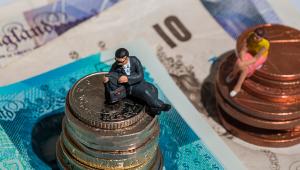The bill, which came into effect on 1 January, requires both companies and government agencies with more than 25 employees to get a certificate that says they pay women and men equally.
Iceland is the first country in the world to legalise equal pay between men and women and plans to completely eradicate the pay gap by 2020.
It will also penalise companies that do not pay men and women equally - up to 50,000 Iceland krona (€400) for each day they are not in compliant.
Abigail Hunt, research fellow at the Overseas Development Institute, told PF: “The new legal measures to end the gender pay gap in Iceland are a hugely important attempt the tackle the persistent discrimination faced by women, which has no place in the modern world of work.
“But it’s not just women who stand to benefit - evidence clearly shows that gender equality benefits business and national economies.
“Therefore other countries – many of which have far bigger gender gaps than Iceland to start off with – should now follow this example.”
Iceland, home to approximately 323,000 people, has been at the forefront of women’s rights and gender pay equality, and has been ranked at the top for gender equality since 2009.
The new legislation was supported by the Icelandic parliament, the centre-right government and the opposition, which is made up of nearly 50% women.
Iceland has made a strong recovery from its 2008 banking crisis and has one of the fastest-growing economies among OECD countries.
But according to government statistics, women in Iceland are paid between 14% and 20% less than men. Activists have long urged the government to do more to tackle this pay gap.
The law was proposed on International Women’s Day on 8 March last year.
The gender pay gap in Europe is the equivalent of women working for free for two months of the year, European Commission figures suggested in November.
The OECD also said advanced economies are not doing enough to close gender gaps and that the average female worker earns almost 15% less than her male counterpart.












